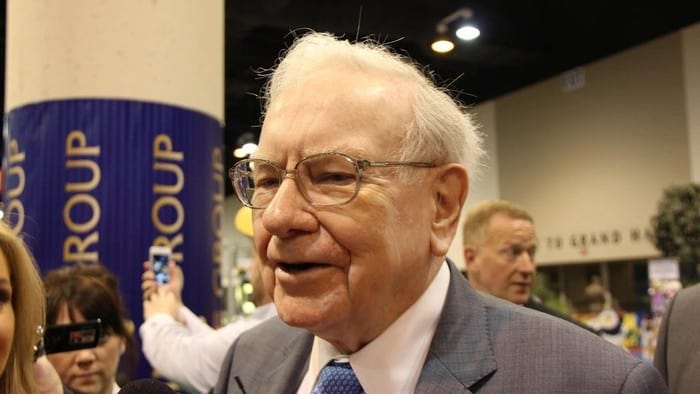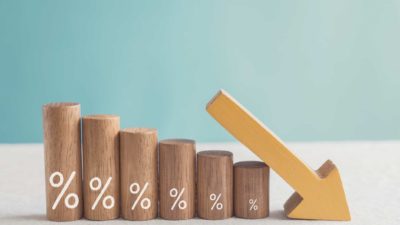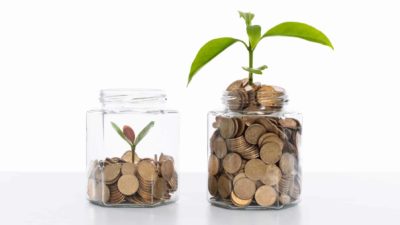Investing legend Warren Buffett has made headlines recently after quarterly filings from his conglomerate Berkshire Hathaway Inc (NYSE: BRK.A) (NYSE: BRK.B) showed the firm had amassed a record US$325 billion pile of cash.
This came after cutting down his stakes in major companies like Apple and Bank of America throughout the period.
Some speculate Buffett is preparing for a market crash. But his actions likely point to something more measured. And, they hold valuable insights for Aussie investors. Let's dive in.
Why Warren Buffett sold shares in the first place
Warren Buffett's decision to trim his Apple holdings came to many as a surprise. It was not only the largest portfolio holding for Berkshire, but the investor has often described his favourite holding period as "forever".
But that is not his only holding period.
Furthermore, despite his long-term success, Buffett is no market timer. According to advisory firm Schiff Sovereign, Buffett's moves might have less to do with a bearish view, and more to do with tax planning.
Buffett isn't predicting a market crash– he's predicting higher taxes… that, sooner or later, the federal government is going to have a take a much bigger bite out of people's paychecks.
This doesn't come as a surprise. Buffett has repeatedly said he's fine paying his fair share of taxes. And at Berkshire's 2024 AGM, the Oracle of Omaha went along the same lines regarding the Apple matter.
We don't mind paying taxes at Berkshire, and we are paying a 21% federal rate on the gains we're taking in Apple. And that rate was 35% not that long ago, and it's been 52% in the past when I've been operating.
And the federal government owns a part of the earnings of the businesses we make. They don't own the assets, but they own a percentage of the earnings, and they can change that percentage any year.
I've also previously highlighted some of the benefits – and ways – of holding cash in an investment portfolio, noting 2% to 10% is recommended by US Bank.
Buffett isn't predicting a crash
There has also been talk that Warren Buffett's gigantic cash pile is some sort of prophecy for the direction of the markets.
After all, Berkshire did invest US$5 billion in investment bank Goldman Sachs, one of the major banks that were bailed out as part of the 2008 global financial crisis.
According to Nir Kaissar in a Bloomberg Opinion article, when combining the record stash of cash, and the Oracle of Omaha's "favourite valuation gauge", it could seem as if he is "trying to time the market's next downturn".
But there's also "an important distinction" to make, Kaissar notes.
There's a difference between betting on turns in the market, which is extremely difficult if not impossible to do profitably, and deciding how to allocate to various assets based on their expected longer-term returns, which can be reliably although not perfectly estimated. In other words, it's the difference between betting on the market's unknowable path versus its likely destination…
…How does Buffett do it? He's betting on a simple principle, which is that valuations and future returns are inversely related. That is, when assets are expensive, future returns tend to be lower, and vice versa.
Warren Buffett also uses simple models to gauge the market's relative value. As I reported last year, one key tool he uses to assess market conditions is the so-called "Buffett Indicator".
This indicator compares the total market capitalisation of a country's stock market to its gross domestic product (GDP). If the market cap significantly outweighs GDP, it could signal that shares are overvalued. Conversely, if the ratio is low, the market might be undervalued.
According to financial data service Guru Focus, the current Buffet Indicator number for the US market is 208%, its highest on record.
So, with market valuations at sky-highs, it stands to reason Buffett sees better value elsewhere. And cash has to come from somewhere.
What does this mean for Aussie investors?
Closer to home, Emma Fisher of Airlie Funds Management sees many parallels in the Australian market. Airlie uses similar investment tenets to Warren Buffett, buying high-quality businesses at reasonable prices.
In a recent note, the fundie said whilst the ASX 200 has delivered nearly 40% return over the past two years or so, this was driven by the valuation multiples investors paid rather than earnings growth.
"Earnings have declined 11% over the last two years, while the price-to-earnings ratio (P/E)) has re-rated by 27%," Fisher explained.
In response, Airlie is shifting its focus toward cheaper ASX shares with "depressed expectations" and attractive long-term fundamentals.
This includes companies like BlueScope Steel Ltd (ASX: BSL), IDP Education Ltd (ASX: IEL), and Ampol Ltd (ASX: ALL), just to name a few.
Foolish takeout
Both Warren Buffett's and Fisher's strategies share a common thread: a long-term view and a focus on value.
But don't undrestimate the value of cash to seize future opportunities, pay taxes, all while maintaining exposure to high-quality businesses.









